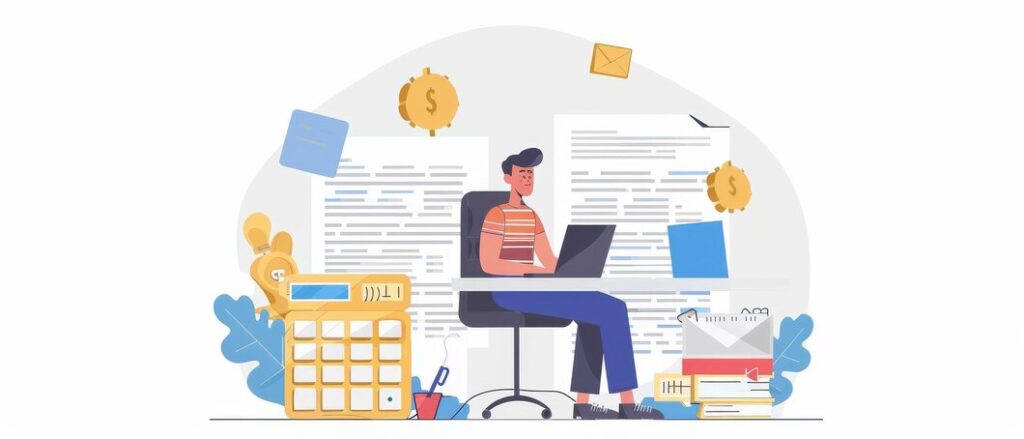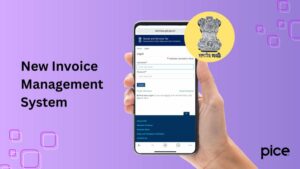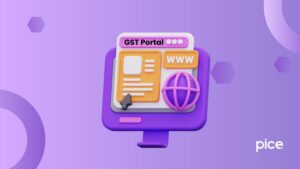GST Rule 86B: Compliance and Financial Integrity
- 20 Sep 24
- 9 mins

GST Rule 86B: Compliance and Financial Integrity
- Understanding Rule 86B's Requirements for Taxpayers
- Clarification on the Calculation of the 1% Cash Payment Limit
- Eligibility Criteria for Compliance with Rule 86B
- Impact on Businesses with Various Types of Supplies
- Treatment of Taxable and Zero-Rated Supplies Under Rule 86B
- Exemptions from Rule 86B
- Special Considerations for Specific Taxpayers
- Managing Compliance and Legal Implications
- Conclusion
Key Takeaway
- Rule 86B mandates a minimum cash payment of 1% of the monthly output tax liability for registered persons with significant taxable supplies to prevent tax evasion and reduce reliance on input tax credits.
- The 1% cash payment required under Rule 86B applies strictly to output tax liabilities and excludes reverse charge payments, ensuring clear and focused compliance efforts.
- Rule 86B provides exemptions for honest taxpayers who demonstrate financial credibility through substantial income tax payments, substantial refunds from zero-rated supplies, or consistent cash payments of tax liabilities.
- Non-compliance with Rule 86B can lead to significant legal consequences, including the inability to file GSTR-1, potential GST registration cancellation, and heightened scrutiny from tax authorities.
- Accurate record-keeping and proactive financial planning are essential under Rule 86B to manage GST obligations effectively and maintain a business’s compliance and standing within the regulatory framework.
Understanding Rule 86B's Requirements for Taxpayers
Rule 86B imposes a requirement on certain taxpayers to make a cash payment of at least 1% of their monthly output tax liability. This requirement applies regardless of the credit available in the electronic credit ledger. Specifically, this rule targets registered persons whose business activities generate substantial monthly taxable supplies, aiming to ensure a minimum cash flow within the tax system and reduce reliance solely on credit for tax payments. The intent is to bolster compliance and prevent potential tax evasion by maintaining a balance between credit utilization and cash payments.
Clarification on the Calculation of the 1% Cash Payment Limit

he 1% cash payment limit under Rule 86B applies only to the output tax liability and does not include reverse charge payments. This means that the calculation of the 1% payment must exclude taxes paid under the reverse charge mechanism, as these are not considered output taxes. The focus is strictly on the taxes due on outward supplies made by the taxpayer. This distinction is crucial for businesses to understand as they calculate their monthly tax obligations under this rule.
Eligibility Criteria for Compliance with Rule 86B
Rule 86B specifically targets registered taxpayers with taxable supplies exceeding Rs. 50 lakhs in a given month, subject to certain exceptions. The rule does not require aggregating taxable supplies from previous months to determine eligibility; instead, it focuses solely on the taxable supplies of the current month. This rule aims to capture high-volume business transactions and ensure compliance among those entities most capable of contributing to the tax base. It's important for businesses to closely monitor their monthly turnovers to ascertain whether they fall under the purview of this rule for any given month.
Impact on Businesses with Various Types of Supplies
The application of Rule 86B varies significantly depending on the types of supplies a business deals with. For calculation purposes, only taxable supplies are considered towards the Rs. 50 lakh threshold that triggers compliance. Zero-rated supplies, such as exports and supplies to SEZs, along with exempt and non-taxable supplies, are excluded from this calculation. This differentiation is crucial as it affects businesses that have a diverse portfolio of supplies, some of which may not be subject to GST at all. Understanding which supplies contribute to the threshold can help businesses manage their tax obligations more effectively and avoid unintended compliance issues.
💡If you want to pay your GST with Credit Card, then download Pice Business Payment App. Pice is the one stop app for all paying all your business expenses.
Treatment of Taxable and Zero-Rated Supplies Under Rule 86B
Under Rule 86B, the treatment of taxable and zero-rated supplies can significantly impact a registered person's tax obligations. For the purpose of calculating the 1% cash payment requirement, taxable supplies are the primary focus. However, when zero-rated supplies are made with the payment of tax, they are included in the total output tax from which the 1% is calculated. This means that if a registered person has taxable supplies of Rs. 60 lakhs and zero-rated supplies of Rs. 40 lakhs in a month, the 1% cash payment is calculated on the total tax due on Rs. 100 lakhs of supplies. Registered persons must accurately track and report these figures to comply with Rule 86B.
Exemptions from Rule 86B

Several exemptions are provided under Rule 86B to alleviate the burden on certain categories of registered persons. These exemptions include:
- Registered persons who, along with certain key management personnel (such as the Proprietor, Managing Director, or partners), have paid more than Rs. One lakh in income tax in each of the two preceding financial years.
- Registered persons who have received a refund of more than Rs. One lakh in the preceding financial year from zero-rated supplies or under the inverted duty structure.
- Registered persons who have consistently discharged a significant portion of their tax liability in cash, exceeding 1% of their total output tax liability cumulatively up to the current month of the financial year.
- Specific categories of registered persons such as government departments, public sector undertakings, local authorities, and statutory bodies are also exempted.
These exemptions are designed to ensure that compliance with Rule 86B is feasible and fair, focusing on registered persons who may be at a higher risk of tax evasion or who manage significant volumes of transactions.
Special Considerations for Specific Taxpayers
Rule 86B of the GST framework includes specific provisions that take into account the diverse circumstances of registered persons. For example, the financial history and tax compliance behavior of a registered person are considered when determining eligibility for exemptions under this rule.
Registered persons who have demonstrated consistent tax compliance, such as by paying substantial income tax amounts in previous years or by regularly receiving refunds for taxes paid on zero-rated or inverted duty supplies, may be exempt from the constraints of Rule 86B. Additionally, the rule takes a pragmatic approach by excluding from its requirements those registered persons who consistently make a significant portion of their tax payments in cash, thus demonstrating their financial solidity and commitment to fulfilling tax obligations.
Managing Compliance and Legal Implications
For registered persons subject to Rule 86B, managing compliance involves meticulous record-keeping and proactive financial planning to ensure that cash resources are available to meet the 1% payment obligation. Non-compliance with this rule can lead to significant legal consequences, including the inability to file GSTR-1, potential cancellation of GST registration, and heightened scrutiny from tax authorities.
To avoid such outcomes, registered persons must ensure they are fully aware of their monthly taxable supplies and maintain an accurate tally of their tax liabilities. Moreover, in cases of inadvertent non-compliance or disputes regarding the application of Rule 86B, registered persons are advised to engage promptly with tax professionals and consider legal recourse to clarify their positions or seek relief. Managing these aspects effectively not only safeguards against legal risks but also enhances a business’s reputation as a compliant and trustworthy entity in the eyes of the law and the market.
Conclusion
Navigating the intricacies of Rule 86B is crucial for registered persons who meet the specified criteria, as compliance impacts both the financial workflow and the legal standing of a business within the GST framework. Understanding the rule's stipulations, such as the 1% cash payment requirement and the specific conditions for exemptions, enables businesses to manage their tax liabilities effectively and avoid penalties. By aligning their operations with the provisions of Rule 86B, registered persons can ensure they meet their tax obligations while maintaining a good standing in the regulatory environment. As the GST landscape continues to evolve, staying informed and proactive in tax management is imperative for all registered persons to foster compliance and ensure the smooth functioning of their business operations.
 By
By 

















